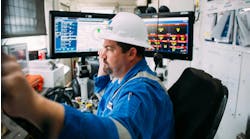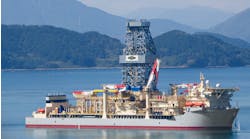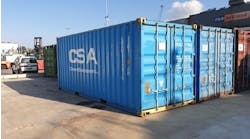At the SPE Annual Conference last October, Ed Merrow of IPA (Independent Project Analysis Inc.) presented data that showed that 20 years ago 50% of megaprojects in E&P failed to meet the IPA definition of success. Today, that number has increased to 75%. At the same time, the failure ratio for megaprojects in other industries has stayed pretty much constant at 50%. Could part of this failure rate and the growing difference from other industries be attributed to the way in which our industry assures technical competence in the conceptual and detail designs of major projects?
Today, to a large extent, the industry focuses on policies, procedures, and audits to assure the quality and safety of projects. This appears to be working with regard to the safety aspect of our projects, but is it sufficient to assure the quality of the decision making that goes into our projects? Does the industry also need to focus on competence, motivation, and behavioral norms of the individuals involved in concept analysis, project definition, and detail design?
In the past, many major oil companies had extensive training programs for a class of in-house engineers variously called facilities engineers, infrastructure engineers, etc. These engineers were given extensive formal training by experienced subject matter experts. In their early careers, they were also given temporary assignments in various engineering groups to better understand the validity and uncertainties in data, and assignments in operating groups. This was designed to help them get a better understanding of the practical aspects of how their designs interfaced with real-world operational problems. They learned the technology of facilities engineering by performing small projects under the tutelage of mentors who were knowledgeable in the technology of facilities engineering, and they learned the discipline of project management by working as team members on larger projects. A number of the engineers so trained eventually migrated to engineering firms and formed the technology backbones of these companies.
Over time, many oil companies have decided that facilities engineering is not a "core competence" and are relying on engineering firms, or non-employee contractors, for the facility expertise needed. However, engineering firms are faced with a problem of providing their staff with the same training and experience building opportunities that was once the norm in oil companies. Due to business demands, often the selection of an engineering firm cannot follow the quality-based process that is recommended by the National Society of Professional Engineers. Oil companies tend to ask engineering firms to provide a bid. Selections are not only based on personnel capability but they are also dependent on cost estimates, rate sheets, or multipliers. The engineering firm must strive to ensure that its rates are comparable to the competition, and that it does the work with a comparable amount of engineering hours. The result is that the engineering firm must keep its non-billable time, including time spent on competency building, to a minimum, and must perform the work with the least amount of re-work to develop a better solution.
More importantly, engineering firms have limited opportunities to provide the informal training that was once available to oil company engineers. They cannot give their engineers the same level of experience of working with other petroleum disciplines to better understand the limitations that are inherent in the basis of design. Nor can they offer them the opportunity to interface regularly with operating personnel to understand practical considerations, which can greatly impact the quality of the design. It is becoming more difficult for engineering firms to arrange for trips offshore and to visit fabrication yards to obtain this tacit knowledge.
Many engineers (and oil company consultants) working on projects are employed to be billable. As the job winds down, other opportunities need to be found. Management has limited incentive to invest deeply in their training, and engineers have limited incentive to find ways to work more efficiently. Thus, engineering firms must rely on the competency of their staff, yet the realities of the contractual business relationship limits their ability to build that competence to a level that once was commonplace.
Engineering firms have developed an extensive array of policies, procedures, and quality control checks through such things as hazards analysis, standardized sizing procedures, and risk management studies. Oil companies have defined detailed stage gate processes to ensure the quality of this work. If the right procedures are followed, it is assumed that the results will be correct. Whether engineers today have the same level of ability to actually exercise proper professional judgment and develop designs that are efficient, constructible, and easy to operate and maintain is open to debate. This could tend to lead to a conclusion that engineering is no longer a profession requiring informed judgment, but rather a series of defined work processes that can be accomplished by technicians performing routine tasks.
This author believes that if we are to make a significant impact in the quality of our projects, we must consider changing the structure of the oil company/engineering firm relationship, and the way both oil companies and engineering firms interact with the engineers defining and designing our projects. Only then can we address the competencies, motivations, and behavioral norms of the individuals involved.
Ken Arnold
K Arnold Consulting Inc.
This page reflects viewpoints on the political, economic, cultural, technological, and environmental issues that shape the future of the petroleum industry. Offshore Magazine invites you to share your thoughts. Email your Beyond the Horizon manuscript to David Paganie at[email protected].


